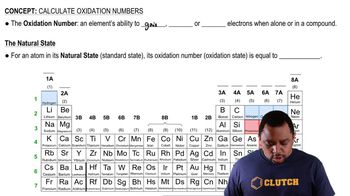Here are the essential concepts you must grasp in order to answer the question correctly.
Oxidation State
The oxidation state, or oxidation number, is a measure of the degree of oxidation of an atom in a compound. It indicates the number of electrons that an atom can gain, lose, or share when forming chemical bonds. In cuprous oxide (Cu2O), understanding the oxidation state of copper is essential for determining its role in the compound's formation and reactivity.
Recommended video:
Cuprous vs. Cupric Compounds
Cuprous oxide (Cu2O) and cupric oxide (CuO) are two different oxides of copper, distinguished by the oxidation state of copper. In cuprous oxide, copper has an oxidation state of +1, while in cupric oxide, it has an oxidation state of +2. Recognizing these differences is crucial for predicting the behavior of copper in various chemical reactions and environmental conditions.
Recommended video:
Homonuclear vs. Heteronuclear Compounds
Environmental Conditions and Corrosion
Environmental conditions, such as pH, temperature, and the presence of moisture or other chemicals, significantly influence the corrosion process of metals like copper. These factors determine whether copper will oxidize to form cuprous oxide or cupric oxide. Understanding how these conditions affect oxidation states helps in predicting corrosion behavior and developing strategies for prevention.
Recommended video:
Ideal Gas Conditions Example




